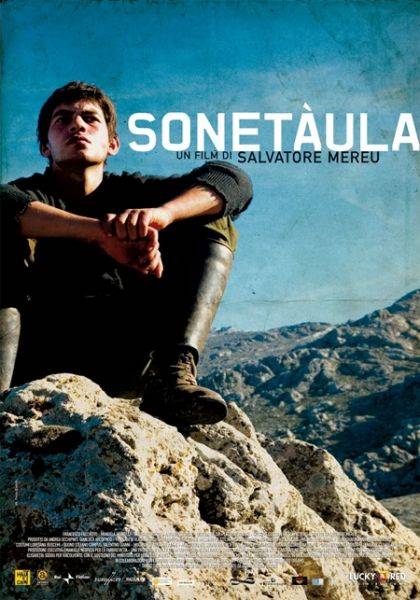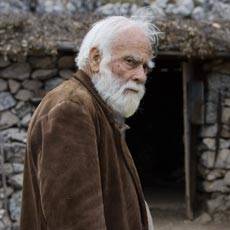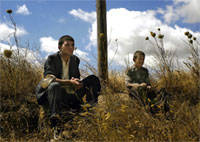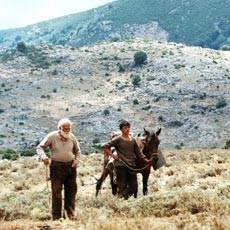Salvatore Mereu introduces us to "Sonetaula"
This is the second time that your movie has been screened abroad – today at Lincoln Center and last February at the Berlin Film Festival...Truthfully, I had already brought the movie to New York. It was between the end of February and the beginning of March. On that occasion, at the New Directors Festival, Sonetaula was screened at Lincoln Center.
What inspired you to write the screenplay?
The movie is based on the novel by the same name, written by Peppino Fiori who is a very well known writer in Sardinia – known mostly for his biographies of famous people such as Gramsci. His work was published by Einaudi in 2000. In it, he beautifully describes the Sardinian terrain and landscape. I wanted to reproduce the intensity of those lines on the big screen.
I am happy I had the chance to do it.
Which aspect of Sardinian traditions and culture does the movie illuminate the most??
Well, I decided to stick to the novel. I consider it a very nice story that rewards the reader with many details about the surrounding environment. This is something I like, besides the fact that it is set in Sardinia. If we consider the book only as an homage to Sardinian culture, we risk missing the opportunity to appreciate a story that has its own beauty, independent of the rest. It can absorb the reader while teaching him/her something. It is the story of a boy growing up without his father who was accused of a murder that he had not committed. His grandfather teaches him about tough country life. This very mild-mannered kid ends up throwing away his adolescence by obeying an ethical code in which he does not believe. He becomes an outlaw when he is still very young and continues living this life until the day he dies, at the age of 20. A story of this kind could have been set anywhere, well outside of Sardinian borders.
It inevitably enhances this beautiful island’s international fame by promoting its culture, its charming landscape, and its inhabitants’ way unique way of life – first here in the United States, and then in each country where the movie will be presented.
Of course, I am so happy that the movie has been appreciated for this reason, as well. The hundreds of people present at Lincoln Center proved to me that they really enjoy my work. I know that the New York public is very demanding, but in my case, they were “patient” enough to watch the whole movie. I was ready for all kinds of reactions...such as seeing people leave after the first ten minutes of the screening. This is because it is a film that demands a lot from the audience: it is very long and has subtitles. Moreover, there are no professional actors in the cast. It has all the elements that certainly do not attract people who see movies as a form of escape. Instead, those who were present showed that they were curious enough and wanted to know more about a world that was new to their eyes, the Sardinian world.
In New York, the subtitles are in English and the dialogue is in Sardinian. And in Italy?
In Italy, the subtitles are in Italian and the dialogue is in Sardinian. Even there viewers considered it a strange movie!
Why, in your opinion, is the American public is so attracted to local, regional cultures?
I think that the United States is like a piazza where people see the entire world. The American public has always had the chance to get to know other peoples’ cultures and traditions through their literature and movie productions. Everything arrives here. I am not surprised to see so many people willing to discover Sardinia. Their taste for the exotic is also very important. It has made the fortune of famous Sardinian writers such as Grazia Deledda.
Then there are the experts, those who consider going to the movies to be almost a second job. I think that they have particularly appreciated my movie. They must have seen a lot more than Sardinian landscapes. They, and many more, must have felt what I wanted to depict – which was a real story, a touching one. That opens the minds of those who want to hear it.
(Edited by Giulia Prestia)
(from Berlin Reviews)






































i-Italy
Facebook
Google+
This work may not be reproduced, in whole or in part, without prior written permission.
Questo lavoro non può essere riprodotto, in tutto o in parte, senza permesso scritto.